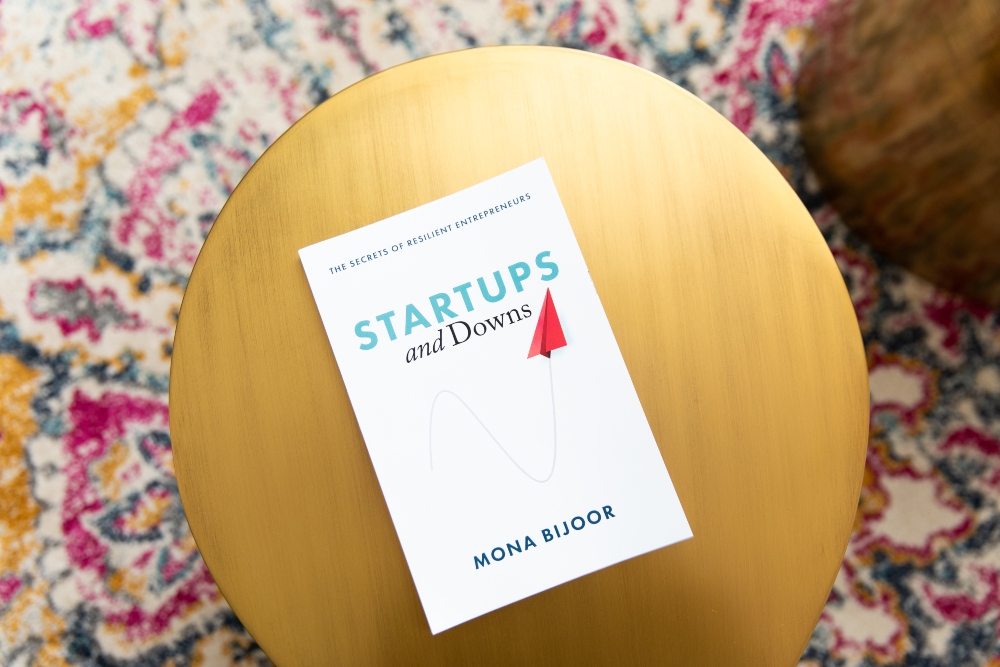Ten years ago, I was using my own capital to fund my own idea: to start a software business in the fashion industry. I’d never launched a company before, and I felt pressure to grow rapidly—otherwise I thought I’d be wasting time and money. I thought that with enough passion and persistence I could be successful on my own and figure out the unknowns along the way. Being a startup founder was probably the most challenging thing I’ve done in my life—with the exception of giving birth to my children, which, by the way, was harder!
I’m proud to say that my company, JOOR, took off. With seven offices globally, serving thousands of brands and retailers and processing billions of dollars of orders, our software changed the way the entire fashion industry works and spawned a lot of competition. It wasn’t easy to get to that place. I weathered the hardship of raising over $20 million in capital, hiring a team and then losing employees, creating a product and fending off competition, and building a brand and then ultimately leaving the company to start a new business in a new industry. The whole process was hard and painful, and there were many days when it was difficult to find the strength to keep going.
The thing is, building a company didn’t need to be that difficult. Many of the issues that I found challenging (for example, hiring and firing) were actually just in my head.
Since then, I’ve learned I wasn’t the only one with that problem. I’ve spent the past couple of years advising hundreds of first-time founders, and came to realize that there is a set of issues that all business owners face at one time or another. These common challenges—pitching investors, losing key employees, dealing with the competition—aren’t something people automatically know how to handle from the get-go. Most founders have had the same thoughts I had when I first began: We all believe we can use our wits and work ethic to overcome any issues we encounter.
As I kept meeting people, I found myself wondering: If these issues are so common, why don’t people get the answers they need the most? Is it because first-time founders are too busy to seek them? Do their egos compel them to reach solutions by themselves?
Then it dawned on me: The root of the problem is that many entrepreneurs simply don’t frame their problems in a way that makes them manageable. Problems either get ignored or blown out of proportion, or they completely derail the founder.
My conversations with first-time founders became the inspiration for my book. In Start-Ups and Downs: The Secrets of Resilient Entrepreneurs, I share what I think all business owners (big, small, start-up, or established) need to know about overcoming the challenges every entrepreneur experiences during their journey. In addition to my own advice, the book is full of interviews with noteworthy founders who often shifted their ways of thinking in order to grow their businesses quickly and profitably. I want readers to learn how having the right mindset—one that is purpose-driven and based on seven simple principles—is the real key to navigating obstacles and bouncing back quickly from whatever life throws at them.
It didn’t matter if I was talking to founders who worked in finance, health care, or beauty, if they were self-made, or if they were billionaires, these seven tenets came up time and time again:
1) Everything is possible. This is the kid-like belief that the sky’s the limit. There is no past experience or humiliating failure that stops these entrepreneurs from believing that anything is possible.
2) Failure is not an option. Founders view failure differently than those who give up. It is this philosophy that is summarized well in Henry Ford’s quote, “Failure is simply the opportunity to begin again. This time more intelligently.”
3) Realism and optimism are friends. Realistic optimists believe that they possess the power to make success happen and make it happen in spite of any circumstance or small failures along the way.
4) You need to find your why. All of the entrepreneurs that I interviewed had a compelling reason to get out of bed in the morning—especially when they don’t want to.
5) A constant state of flow leads to success. Entrepreneurs aren’t wedded to HOW things are going to happen. They are wedded to WHY they want to head in a certain direction.
6) The answers lie within. The entrepreneurs that I spoke to have their own definitions of success. They’ve stopped long ago comparing their lives to others.
7) You must trust the process. Because successful entrepreneurs believe that it’s lots of small wins that translate into big successes—and big success doesn’t come in an instant.
Hands down, these principles are the one thing that people who persevere and succeed have in common. My hope is that our stories will inspire anyone to find their true purpose and achieve success, too.

